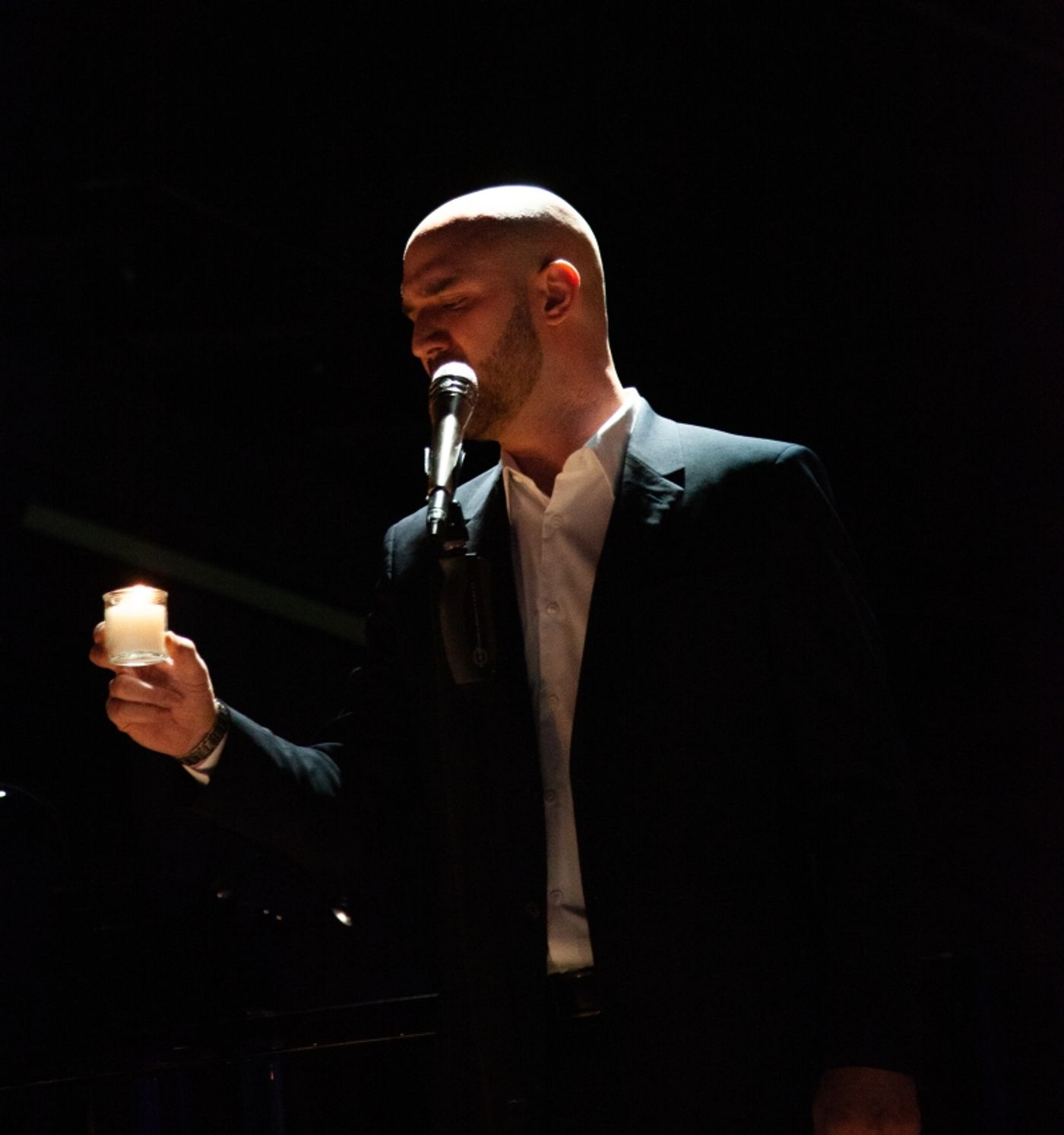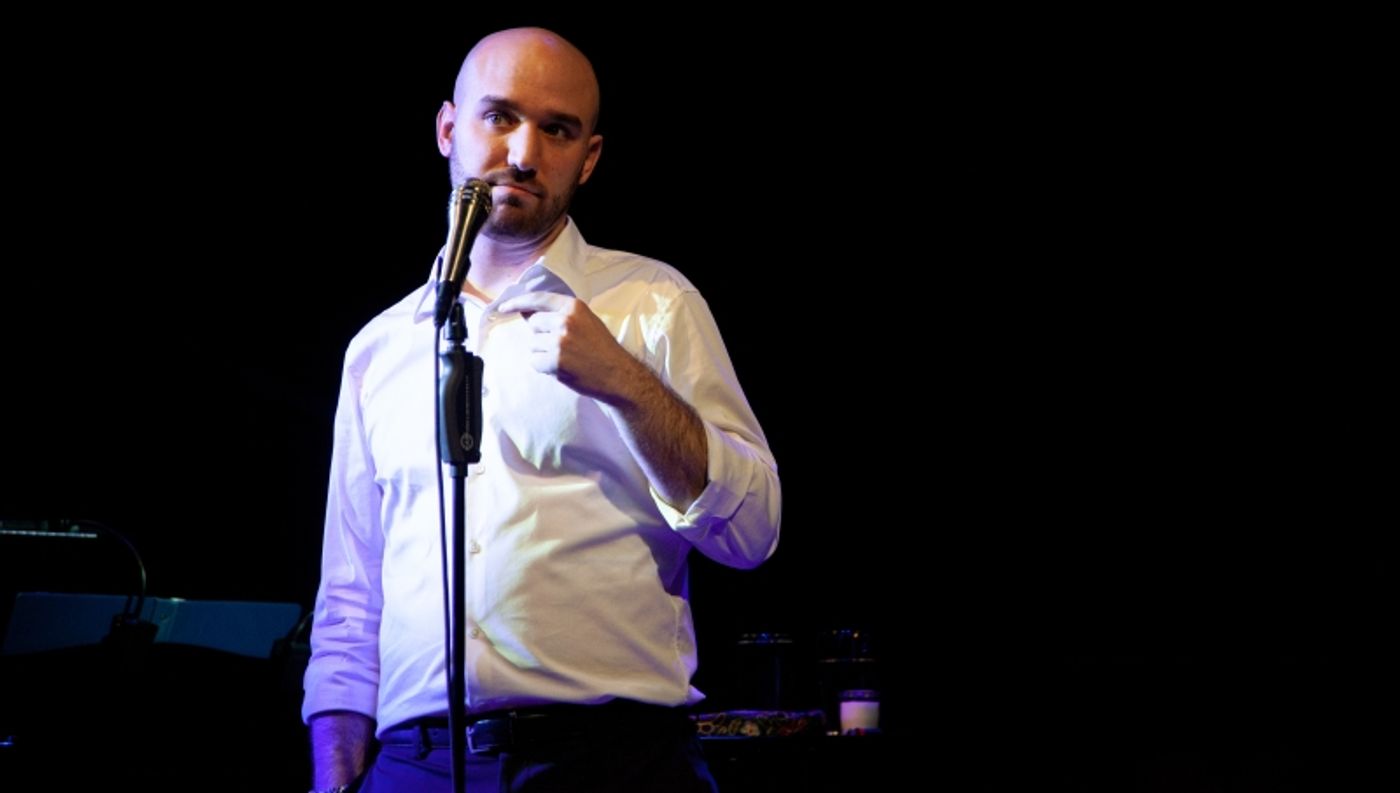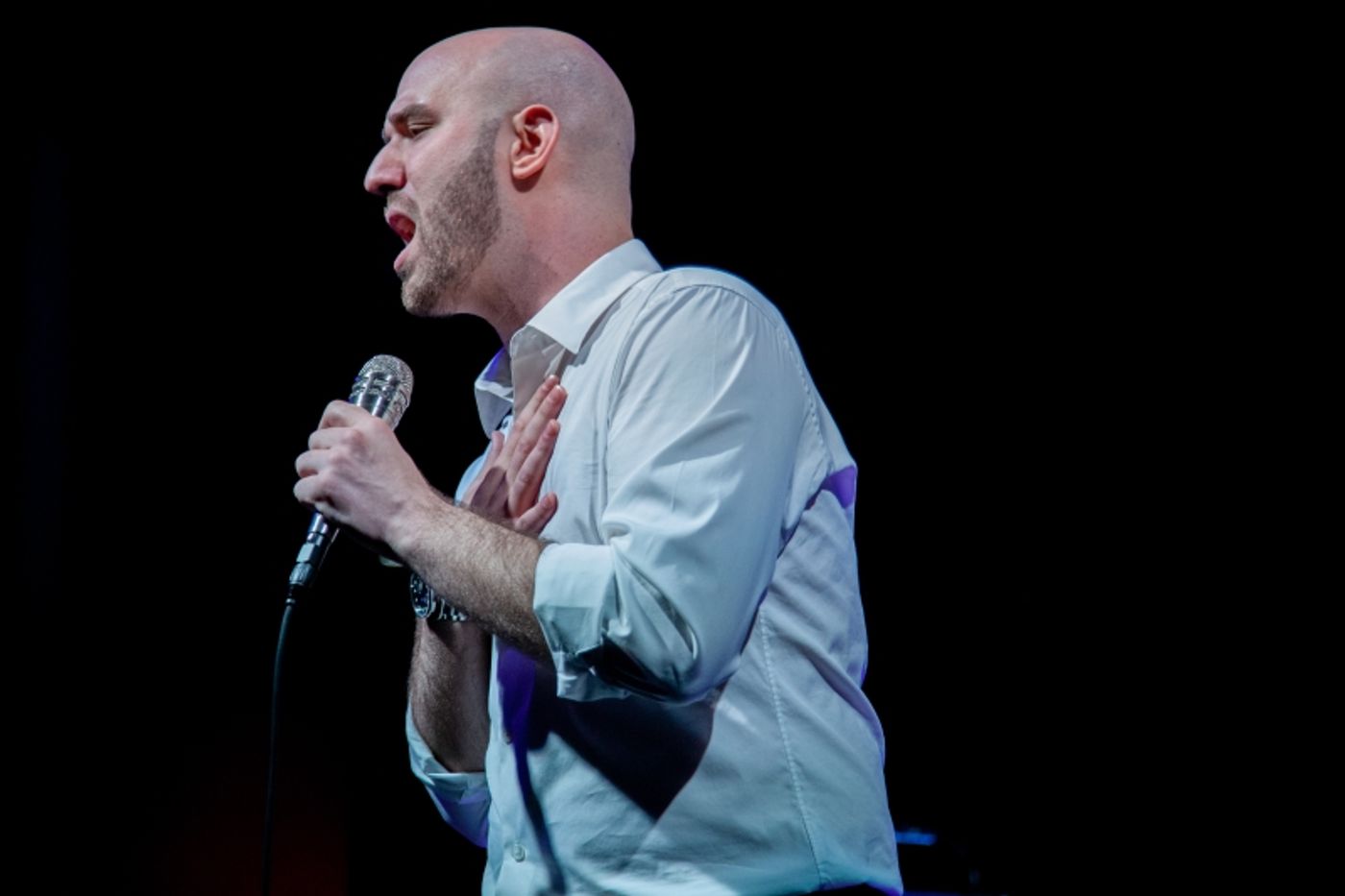Review: Ari Axelrod Finds the Light in A PLACE FOR US: A CELEBRATION OF JEWISH BROADWAY at Chelsea Table + Stage
Ari Axelrod Celebrates Jewish Broadway

When Ari Axelrod was putting together the current run of his show, A PLACE FOR US: A CELEBRATION OF JEWISH BROADWAY, he couldn’t foresee that it would open at a time of mourning for Jews around the world. The horrendous attacks in Israel have made any sort of celebration hard to bear. But, as Axelrod points out, that is precisely the reason it is imperative to celebrate the achievements of Jewish Americans. And nowhere is that influence felt more strongly than on Broadway in the musical theatre. The American musical was born before the turn of the last century out of an unlikely mix of European operetta, authentic African-American folk music, and its parody in the form of white minstrel shows and Jewish klezmer and storytelling traditions. The first wave of Broadway’s golden age happened to coincide with the largest wave of Jewish immigrants to the burgeoning city of New York in the earliest years of the 20th century. And, so, the creativity and industry of those first-generation Jews became the backbone that many traditions of the Broadway musical sprang from.
That is the background of Ari Axelrod’s show. But his premise is even more interesting than those dry facts. He points out that this influence on Broadway goes well beyond Jewish cultural identity. In fact, he spends a good deal of his show pointing out examples of musical samplings that have been either loosely or, quite literally, based on Jewish liturgical materials. If all of this sounds like an advanced-level college course, let me assure you that Mr. Axlerod is much too engaging a performer to get bogged down in any didactic academic examination of the subject. Instead, his very smart show is filled with some of the finest tunes yet written for the Broadway stage that just happen to have interesting Jewish roots. I can’t pretend to be an expert on the prayers and texts that Axelrod quotes in his fine show, but know I that he is very well versed in them, and he speaks with authority about the spiritual nature of some of these tunes.
Mr. Axelrod began his evening with Jason Robert Brown’s very moving riff on the “Hatikva,” the Israeli National Anthem. It was a somber but lyrical beginning to a celebratory evening, but it seems entirely correct in this time of strife. The celebration began in earnest with “Miracle of Miracles” from Fiddler on the Roof. As Axlerod pointed out, Fiddler is an almost universal touchstone when addressing the traditions of Judaism in musical theatre. It is equally accessible to Jews and Gentiles alike. But he pointed out that Fiddler was only the most famous example, not the first to address Judaism in a show created by an all-Jewish writing team. To illustrate that he gave us “Shalom” from Milk & Honey, Jerry Herman’s musical about the new state of Israel written nearly six years before Fiddler.

He informed us that, by the height of the golden age, tunes based on Jewish modes and scales were being used even by non-Jews. The very Protestant Cole Porter frequently turned to such compositional devices. “So in Love” from Kiss Me Kate is the perfect example. He pointed out the only 3-generation Jewish writing dynasty in musical theatre so far, giving us Richard Rodgers’ “Some Enchanted Evening,” Mary Rodgers’ “Shy,” and Adam Guettel’s “Daybreak” from his breakout musical Floyd Collins. He rounded out this section with a fictional and, then, a true-life character from Jason Robert Brown in “Shiksa Goddess” from The Last Five Years, followed by “This is Not Over Yet” from Parade.
No show about Jewish Broadway would be complete without a mention of the works of Stephen Sondheim. Ari gave a thoughtful reading of “Send in the Clowns,” bringing our attention to the fact that the bridge was based on liturgical melodies. He also pointed out some nearly note-by-note quotes of similar texts in “It Ain’t Necessarily So” from George and Ira Gershwin’s Porgy and Bess.

He sang a very moving arrangement of “Bring Him Home” from Les Miserables, shifting the lyric to “bring THEM home" in the last verse. One could not help but think of the terrible plight of Israeli hostages currently being held in Gaza. He also taught us that the bridge of Irving Berlin’s “God Bless America” is not as original as we might have thought. Turns out it is a tune well-known to cantors around the world. He closed this section with Daniel Cainer’s haunting “God Knows Where.”
The last section of the concert was dedicated to Leonard Bernstein, who was not only one of America’s greatest musical influences but was also an advocate for peace in all corners of the world. He proudly used his Jewish identity to champion the rights of all peoples. Axelrod pointed out the klezmer influence of “Cool” from West Side Story and found liturgical musical themes in “Somewhere” from the same show.
Ari Axlerod was supported by the marvelous arrangements and sensitive musical direction of Mike Stapleton. Stapleton’s band, Alon Bisk on cello, Barbara Merjan on drums, Randy Landeau on bass, and Nathan See on clarinet and flute could not have been better. Mr. Axelrod is a wonderful singer with a warm and expressive instrument. His acting is impeccable and he has a marvelous gift for stillness, not cluttering up the songs with a lot of posturing. It is a treat to find a singer who really trusts the words. But Axlerod chose some of the best words ever created for the theatre in this show. It is a smart performer who can make you see new levels in the standards you have known for years. Ari Axelrod is that kind of performer.

For more about art Axelrod visit ariaxelrod.com or follow him @ariaxelrod on Instagram. For other great artists at Chelsea Table + Stage, see chelseatableandstage.com.
Editor's note: The photos used in this article are NOT from this production. Our reviewer was unable to secure any viable photos of Mr. Axelrod from the seat he was assigned by the establishment. We have used photos of Ari Axelrod at Chelsea Table + Stage taken in November, 2022. --- S. Mosher
Reader Reviews
Videos

